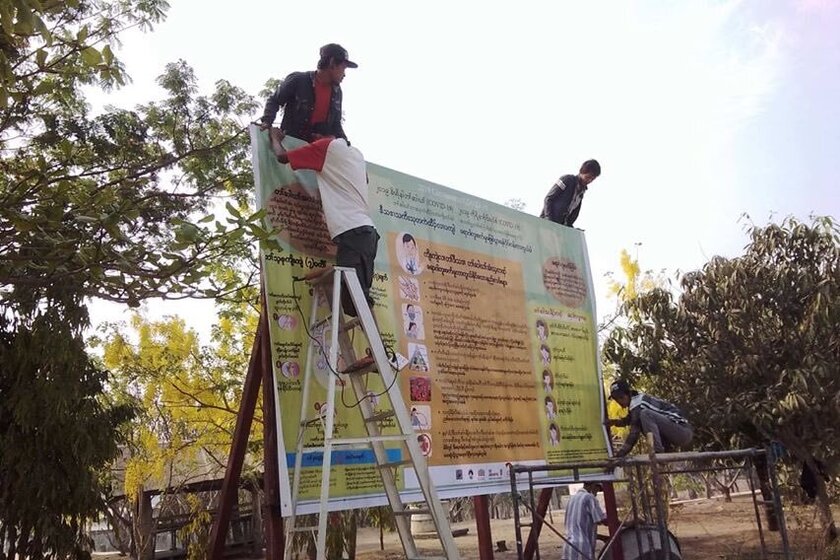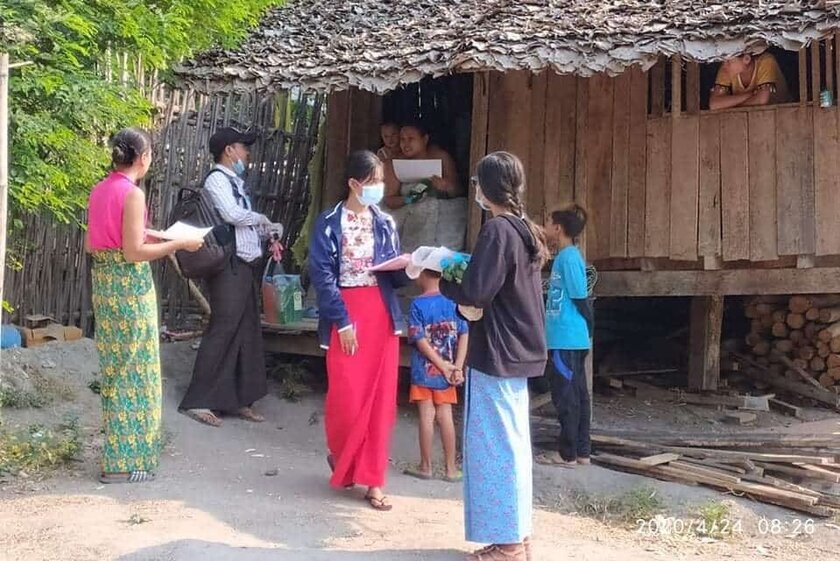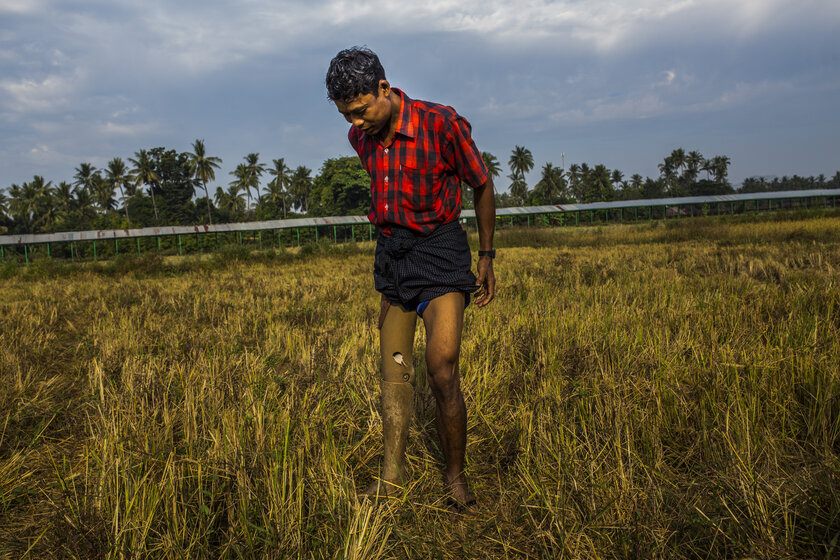Myanmar: Sources of Income Cut Off by Pandemic

Berlin / Yangon, 15 May 2020
Our local partner organisation Karen Department of Health and Welfare (KDHW) in Myanmar provides information about the corona virus and health policy developments in the settlement of Lay Kay Kaw New Town in Karen State. The measures are part of a consortia project launched in September 2016 to support and strengthen the reintegration of returning refugees and the local communities affected by the conflict.
Through home visits to 698 households, information is provided on precautions and current regulations in Lay Kay Kaw New Town. Posters and billboards at public places support these efforts. The measures are carried out by KDHW together with the settlement administration and trained volunteers. Every household visited receives a soap pack. It is planned to extend home visits to the other 39 target villages of the project to reach a total of 2526 households. "Lay Kay Kaw had priority at first because many migrant workers pass through the area returning from Thailand. Some of them have to go through two-week quarantine in the resettlement area," says Lothar Kinzelmann, Head of Mission of Johanniter in Myanmar.
Support with economic cutbacks
Although the people living in the target communities of the project have been largely spared by the virus in terms of health, they are nevertheless feeling the indirect, economic consequences of the pandemic. Due to the closure of the border with Thailand, hardly any food and other products of daily use are coming into the border area. Especially people who do not own their own farmland and live on daily wages suffer from the restrictions. Thai investors no longer hire day laborers and people can no longer go to the neighbor country to work and earn an income.

In some villages the project had already supported the establishment of self-administered village funds out of which those affected can obtain low-interest bridging loans. However, the reserves are not high enough to financially guarantee access to sufficient food for all vulnerable families in the current crisis. Therefore, an increase in the village funds is planned.
The crisis shows us how important self-help structures are. This has now become a focal point in our projects.
Many villages had isolated themselves to protect themselves against the virus and not let anyone else in. In addition to village funds, savings and credit groups have been set up so the members can support each other.
As the local rice storage facilities are currently mostly exhausted, the project also aims to purchase and deliver rice to provide this important staple food. In addition to KDHW, the Committee for Internally Displaced Karen People (CIDKP) and the Karen Office of Relief and Development (KORD) are visiting the target villages to assess the exact needs. The joint consortium project is financed by the German Federal Ministry for Economic Cooperation and Development (BMZ) through its Transitional Development Assistance funding program.

Johanniter Internationl Assistance has been active in Myanmar since 2008. Due to ethnic conflicts, many people in Myanmar have to flee their homes. Over the years, ceasefires have been negotiated, and since the Nationwide Ceasefire Agreement was signed at the end of 2015, the Karen region has been largely under ceasefire. But even if people are able to return to their homes, they are not immediately able to support themselves. Our partner organizations support the people with food and income security, health care, the establishment of water supply systems and sanitation facilities and conduct information events for peace building. Since Myanmar is not only affected by armed conflicts but also by natural disasters, we support the people in disaster risk management and, if necessary, with emergency response measures.
What we do against Corona worldwide
We are adapting our current project activities to respond to the worldwide corona pandemic.